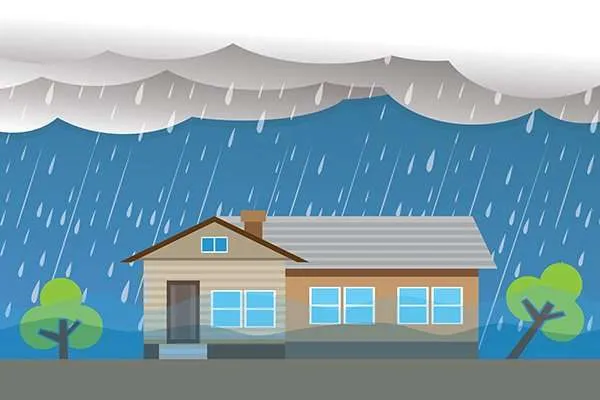Homeowners Insurance: Protecting Your Property and Belongings
Keywords: homeowners insurance, types of homeowners insurance, homeowners insurance coverage, benefits of homeowners insurance, choosing homeowners insurance
Introduction
Homeowners insurance is a vital financial product designed to protect your home and personal belongings from various risks, including theft, fire, and natural disasters. This insurance not only safeguards your property but also provides liability coverage in case someone is injured on your property. In today's world, where unforeseen events can lead to significant financial losses, having adequate homeowners insurance is essential. This comprehensive guide will explore the various types of homeowners insurance, the benefits they provide, and essential tips for choosing the right policy for your needs.
Why is Homeowners Insurance Important?
Homeowners insurance is crucial for several reasons:
- Financial Protection: Homeowners insurance protects you against financial losses resulting from damage to your home or personal property. Without insurance, you would have to bear the full cost of repairs or replacements out of pocket.
- Liability Coverage: Homeowners insurance includes liability coverage, which protects you if someone is injured on your property and decides to sue you for damages. This coverage can help pay for legal expenses and settlements.
- Peace of Mind: Knowing that your home and belongings are protected provides peace of mind. Homeowners insurance allows you to enjoy your home without the constant worry of potential financial loss due to unexpected events.
- Mortgage Requirement: If you have a mortgage on your home, your lender will likely require you to carry homeowners insurance as a condition of the loan. This ensures that their investment is protected in case of damage to the property.
- Coverage for Additional Living Expenses: If your home becomes uninhabitable due to a covered loss, homeowners insurance can cover additional living expenses, such as temporary housing and meals, allowing you to maintain your quality of life during the repair process.
Types of Homeowners Insurance
There are several types of homeowners insurance policies available, each designed to meet different needs. Understanding the types of policies can help you choose the one that best suits your circumstances:
1. HO-1: Basic Form
Description: The HO-1 policy provides basic coverage for your home and personal property against a limited number of perils, including fire, lightning, windstorm, hail, explosion, and vandalism. This is the most basic form of homeowners insurance and is rarely available today.
Benefits: HO-1 policies are often cheaper but provide limited coverage, making them suitable for those who want minimal protection.
2. HO-2: Broad Form
Description: The HO-2 policy offers broader coverage than the HO-1, protecting against more perils, including falling objects, weight of ice or snow, and accidental discharge of water. This type of policy covers both the structure and personal property.
Benefits: HO-2 policies are a step up in coverage from HO-1 and are suitable for homeowners who want a bit more protection without a significant increase in premiums.
3. HO-3: Special Form
Description: The HO-3 policy is the most common type of homeowners insurance. It provides coverage for the structure of your home against all perils, except those specifically excluded in the policy. Personal property is covered on a named-perils basis, similar to HO-2 policies.
Benefits: HO-3 policies offer comprehensive protection for your home and a wide range of risks, making them ideal for most homeowners.
4. HO-4: Tenants Form
Description: The HO-4 policy is designed for renters. It covers personal property against specified perils and includes liability coverage. However, it does not cover the physical structure of the building, which is the landlord's responsibility.
Benefits: HO-4 policies are affordable options for tenants who want to protect their belongings and have liability coverage without needing to insure the entire property.
5. HO-5: Comprehensive Form
Description: The HO-5 policy provides the most extensive coverage for homeowners. It covers both the home and personal property on an open-perils basis, meaning it covers all risks unless explicitly excluded in the policy.
Benefits: HO-5 policies are suitable for homeowners with valuable possessions or those who want maximum protection against various risks.
6. HO-6: Condominium Form
Description: The HO-6 policy is designed for condominium owners. It provides coverage for personal property and the interior structure of the unit, including walls and fixtures. It typically does not cover the exterior of the building, which is insured by the condominium association.
Benefits: HO-6 policies are tailored to meet the specific needs of condo owners, ensuring protection for their personal property and shared spaces.
7. HO-7: Mobile Home Form
Description: The HO-7 policy is designed for mobile or manufactured home owners. It provides coverage similar to HO-3, protecting the home and personal property against a variety of perils.
Benefits: HO-7 policies cater to the unique needs of mobile home owners, ensuring they have adequate protection for their property.
8. HO-8: Older Home Form
Description: The HO-8 policy is designed for older homes that may not meet current building codes. It provides limited coverage for the structure and personal property based on actual cash value rather than replacement cost.
Benefits: HO-8 policies are suitable for homeowners of older properties who may have difficulty finding other types of coverage due to the home's age.
Key Coverage Areas in Homeowners Insurance
Homeowners insurance typically includes coverage for several key areas, ensuring comprehensive protection for your property:
1. Dwelling Coverage
Description: Dwelling coverage protects the physical structure of your home, including the roof, walls, and foundation. It covers damages caused by covered perils such as fire, windstorm, hail, and vandalism.
Importance: Dwelling coverage is essential for ensuring that you can repair or rebuild your home in the event of significant damage.
2. Other Structures Coverage
Description: This coverage protects structures on your property that are not attached to your home, such as garages, sheds, fences, and pools.
Importance: Other structures coverage ensures that you can repair or replace these additional features if they are damaged by covered perils.
3. Personal Property Coverage
Description: Personal property coverage protects your belongings, including furniture, clothing, electronics, and appliances, against theft or damage from specified perils.
Importance: This coverage ensures that you can replace your personal belongings without facing a significant financial burden.
4. Liability Coverage
Description: Liability coverage protects you if someone is injured on your property and sues you for damages. It helps cover legal fees, medical expenses, and settlement costs.
Importance: Liability coverage provides crucial financial protection against potential lawsuits, helping you avoid significant out-of-pocket expenses.
5. Additional Living Expenses (ALE)
Description: ALE coverage helps cover costs associated with living elsewhere while your home is being repaired after a covered loss. This may include temporary housing, meals, and other related expenses.
Importance: ALE coverage ensures that you can maintain your standard of living even when your home is uninhabitable due to damage.
Common Exclusions in Homeowners Insurance
While homeowners insurance offers extensive coverage, certain exclusions may apply. Understanding these exclusions can help you make informed decisions about your policy:
1. Flood Damage
Description: Most standard homeowners insurance policies do not cover damage from flooding. Flood insurance is a separate policy typically provided through the National Flood Insurance Program (NFIP) or private insurers.
Importance: Homeowners in flood-prone areas should consider purchasing additional flood insurance to protect against potential losses.
2. Earthquake Damage
Description: Standard homeowners insurance policies generally exclude coverage for earthquake damage. Homeowners may need to purchase a separate earthquake insurance policy for protection.
Importance: Homeowners in seismically active regions should assess their risk and consider obtaining earthquake insurance to protect their property.
3. Maintenance Issues
Description: Homeowners insurance typically does not cover damage resulting from poor maintenance or wear and tear. This includes issues like mold, pest infestations, and roof leaks due to neglect.
Importance: Regular maintenance and prompt repairs are essential to prevent damage that may not be covered by insurance.
4. Intentional Damage
Description: Damage caused by intentional acts, such as vandalism or arson, is generally excluded from homeowners insurance coverage.
Importance: Homeowners should avoid engaging in activities that could lead to intentional damage, as such actions can void coverage.
5. Business-Related Damage
Description: Homeowners insurance typically does not cover damage or liability related to business activities conducted from home. Home-based business owners should consider obtaining a separate business insurance policy.
Importance: Ensuring proper coverage for business-related activities can help protect personal and professional assets.
Benefits of Homeowners Insurance
Homeowners insurance offers a range of benefits that extend beyond mere property protection. Here are some key advantages:
1. Comprehensive Coverage
Homeowners insurance provides comprehensive coverage for your home, personal property, and liability, ensuring you are protected against a variety of risks.
2. Protection Against Financial Loss
In the event of a covered loss, homeowners insurance helps mitigate financial loss by covering the costs of repairs, replacements, and legal expenses.
3. Peace of Mind
Having homeowners insurance offers peace of mind, allowing you to enjoy your home without the constant worry of potential financial burdens due to unforeseen events.
4. Asset Protection
Your home is likely your most significant investment. Homeowners insurance protects this asset, ensuring you can maintain its value even in the face of adversity.
5. Liability Protection
Liability coverage protects your financial interests in case of accidents or injuries occurring on your property, covering legal expenses and settlements.
6. Coverage for Additional Living Expenses
If your home becomes uninhabitable due to a covered loss, homeowners insurance can cover additional living expenses, allowing you to maintain your quality of life.
7. Customizable Coverage Options
Many homeowners insurance policies offer customizable options and add-ons, allowing you to tailor your coverage to meet your specific needs.
How to Choose the Right Homeowners Insurance Policy
Choosing the right homeowners insurance policy requires careful consideration of your needs and circumstances. Here are some essential tips to help you make an informed decision:
1. Assess Your Coverage Needs
Evaluate the value of your home and personal property to determine the amount of coverage you need. Consider factors such as the cost to rebuild your home and the value of your belongings.
2. Understand Policy Types
Familiarize yourself with the different types of homeowners insurance policies available. Determine which policy type best meets your needs and budget.
3. Compare Quotes
Obtain quotes from multiple insurance providers to compare coverage options, premiums, and deductibles. Online comparison tools can simplify this process.
4. Read Reviews and Ratings
Research customer reviews and ratings for insurance companies to assess their reputation and customer service. Look for insurers with a track record of prompt claims handling.
5. Inquire About Discounts
Many insurance companies offer discounts for various reasons, such as bundling policies, installing security systems, or being claim-free. Inquire about potential discounts to save on premiums.
6. Review Policy Exclusions
Thoroughly review the policy’s exclusions and limitations to understand what is not covered. This knowledge is crucial for avoiding surprises during the claims process.
7. Seek Professional Advice
If you’re uncertain about your coverage needs or policy options, consider consulting with an insurance agent or broker. They can provide valuable insights and help you find the best policy for your situation.
Conclusion
Homeowners insurance is an essential investment for protecting your property and belongings. With various types of coverage available, it’s crucial to understand your needs and assess the available options. From protecting against financial loss to providing peace of mind, homeowners insurance plays a vital role in ensuring your home remains a safe and secure environment.
By taking the time to research and compare policies, you can make informed decisions that provide the necessary coverage for your unique situation. Safeguarding your home and personal belongings is an important step toward securing your financial future. Don't wait until it's too late—invest in homeowners insurance today to protect what matters most.





